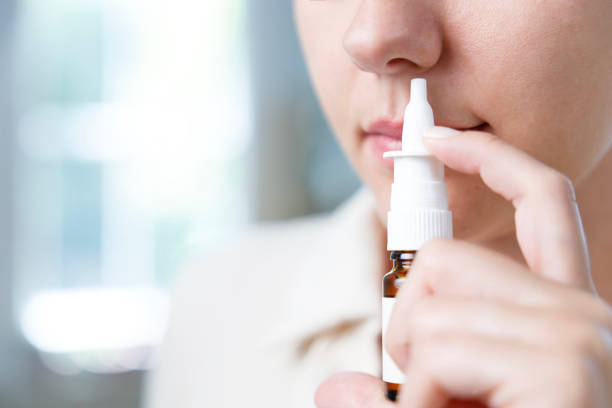USP Container Closure Integrity Testing for Inhalers
The USP (United States Pharmacopeia) provides a comprehensive set of standards to ensure quality, safety, and efficacy in pharmaceutical products. One crucial aspect is the integrity of container closures used in inhalation devices, such as metered-dose inhalers (MDIs), dry powder inhalers (DPIs), and nasal sprays.
The purpose of Container Closure Integrity Testing (CCIT) for inhalation products is to verify that the closure system remains intact throughout the product's shelf life. This ensures the drug product does not come into contact with harmful substances from the environment, thereby maintaining its stability and efficacy. The USP guidelines for CCIT are designed to prevent microbial ingress and ensure the integrity of the dosage unit.
Inhalation devices often use complex multi-layered materials that must withstand various environmental conditions such as heat, humidity, and mechanical stress without compromising their seal. These layers can include polymers like polyvinyl chloride (PVC), polycarbonate, or aluminum foil, along with elastomeric seals made from rubber compounds.
The testing process involves exposing the inhalation device to different stresses that it might encounter in real-world use and storage conditions. Common methods include:
- Humidity challenges
- Heat cycling tests
- Mechanical stress simulations
- Biotic testing using microorganisms such as fungi, yeasts, or bacteria
The chosen method depends on the specific inhalation product and its regulatory requirements. For instance, MDIs are typically tested for their ability to resist moisture intrusion during heat cycling, while DPIs may require more rigorous biotic testing due to their powder-based contents.
Once the device has undergone these stress tests, it is subjected to a vacuum leak test or helium mass spectrometry (HMS) analysis. The latter is particularly sensitive and can detect leaks as small as 1 part per million (ppm). This ensures that even minute breaches in the container closure do not compromise the integrity of the product.
The results of these tests are meticulously documented, including any findings or anomalies encountered during testing. Compliance with USP guidelines is critical for obtaining regulatory approval and ensuring patient safety. By adhering to these stringent standards, manufacturers can demonstrate their commitment to quality assurance and reliability.
Benefits
Implementing USP Container Closure Integrity Testing offers numerous benefits that enhance the overall quality of inhalation products:
- Enhanced Patient Safety: Ensures that patients receive a consistent and effective dosage without contamination.
- Regulatory Compliance: Meets stringent USP standards, facilitating smoother regulatory approvals.
- Increased Product Reliability: Reduces the likelihood of product recalls due to container integrity issues.
- Improved Brand Reputation: Demonstrates a commitment to quality and patient safety, enhancing brand loyalty.
By focusing on these key areas, pharmaceutical companies can significantly improve their product offerings and market standing. This testing process is an essential step in ensuring that inhalation products meet the highest standards of integrity and reliability.
Quality and Reliability Assurance
- Humidity Challenges: Simulating real-world storage conditions to ensure containers can withstand moisture without compromising product integrity.
- Heat Cycling Tests: Exposing the inhalation device to temperature variations to assess its durability and seal strength.
- Mechanical Stress Simulations: Testing the closure system under various mechanical loads to mimic handling during production, shipping, and use.
- Biotic Testing: Using microorganisms to evaluate the effectiveness of the container closure in preventing microbial ingress.
The results from these tests are used to make informed decisions about process improvements and quality control measures. By identifying potential weaknesses early on, manufacturers can take proactive steps to enhance product integrity and reliability.
Competitive Advantage and Market Impact
In the highly competitive pharmaceutical industry, maintaining the highest standards of quality and integrity is not only a regulatory requirement but also a critical factor in gaining and retaining market share. By excelling in Container Closure Integrity Testing, companies can:
- Gain Competitive Edge: Differentiate themselves from competitors by delivering products that meet or exceed industry standards.
- Increase Market Share: Attract more customers by building trust and confidence in their product quality.
- Enhance Brand Reputation: Establish a reputation for reliability and innovation, which can lead to long-term customer loyalty.
This commitment to quality not only enhances the company's image but also contributes significantly to its success in the market. By adhering to USP guidelines, pharmaceutical companies ensure that their inhalation products are safe, effective, and reliable for patients worldwide.





